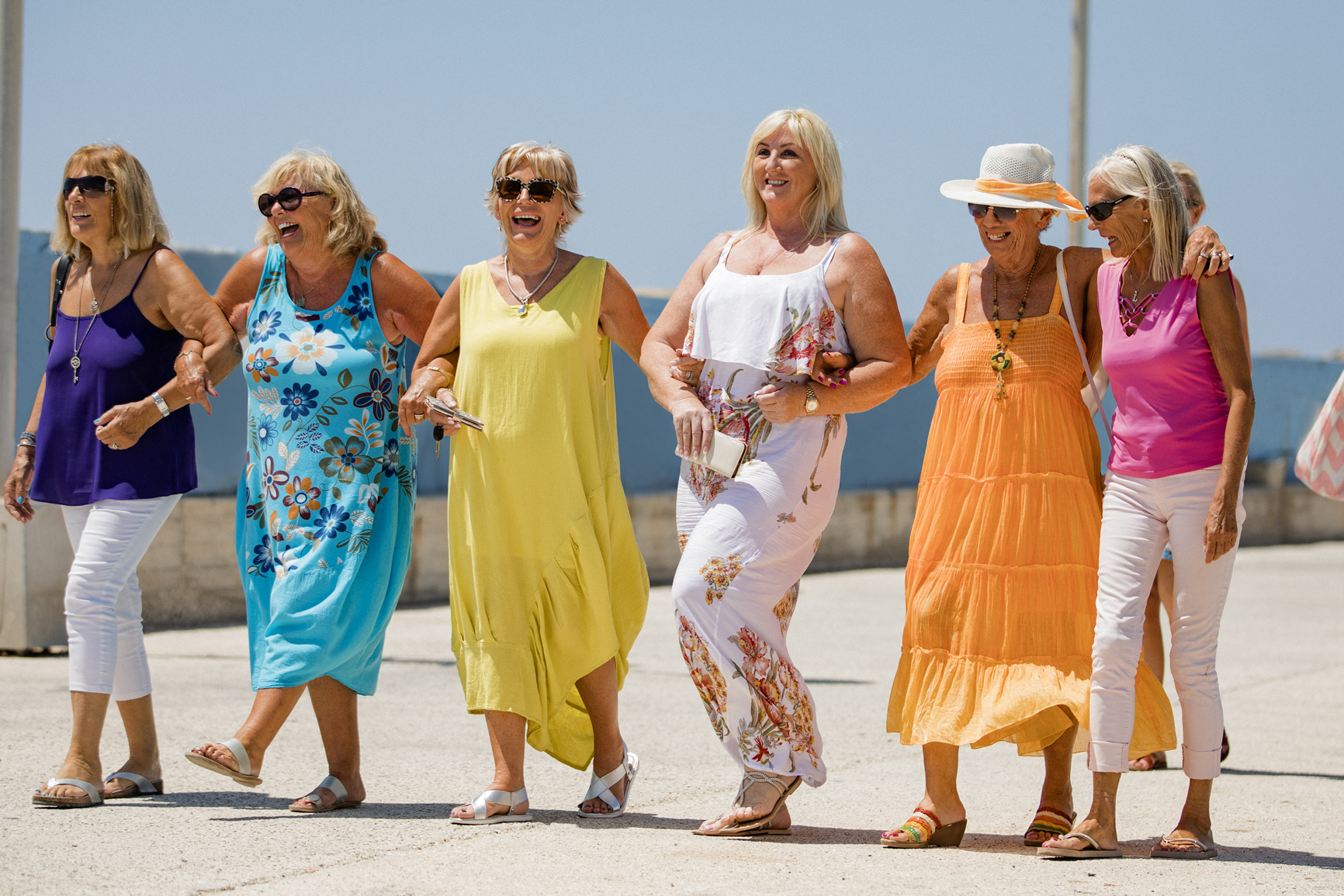Menopause vaginal dryness can result in painful sex, itching and burning and other symptoms we may not necessarily associate with menopause, including urinary symptoms.
Vaginal Dryness
What is the association between vaginal dryness and menopause?
In Vaginal Dryness After Menopause: How To Treat It? published 07 December 2022, the author explains:

“Vaginal dryness is a hallmark sign of the genitourinary syndrome of menopause, also known as atrophic vaginitis or vaginal atrophy. With this condition, vaginal tissues become thinner and more easily irritated — resulting from the natural decline in your body’s estrogen levels during menopause”.
In Looking After Yourself: Sex and Relationships – What Can Affect Your Sex Life? Dry Vagina and Pain During Sex the (Australian) Jean Hailes for Women’s Health explain:
Common or Not
How common is vulvovaginal atrophy (VVA)?
On page one in Could Altering Vaginal Microbiome Treat Vaginal Dryness and Painful Sex During Menopause? published 25 January 2023, according to the NAMS:
Vaginal Dryness Treatment Options
What are some vaginal dryness treatment options?
In Vaginal Dryness: Treatment Options, published December 2022, the North American Menopause Society elaborate on:
- “Nonhormone Remedies
- Vaginal Lubricants…
- Vaginal Moisturizers…
- Regular Sexual Stimulation…
- Expanding Your Views of Sexual Pleasure…
- Vaginal Dilators…
- Pelvic Floor Exercises…
- Vaginal Hormone Therapy…
- Low-dose local estrogen…
- FDA-approved low-dose vaginal estrogen products…
- Dehydroepiandrosterone (DHEA; Prasterone)
- Low-dose vaginal estrogen or DHEA and a history breast or uterine cancer…
- Systemic Estrogen Therapy
- Other Therapies…
- Ospemifene
- Vaginal Laser Therapy…”.
Vaginal Oestrogen
How effective is vaginal oestrogen?
In the Joint Position Statement By the British Menopause Society, Royal College of Obstetricians and Gynaecologists and Society for Endocrinology on Best Practice Recommendations for the Care of Women Experiencing the Menopause, first published online 10 June 2022, one of the recommendations is:

- “Low-dose and ultra-low dose vaginal oestrogen preparations can be taken by perimenopausal and menopausal women experiencing genitourinary symptoms and continued for as long as required. All vaginal oestrogen preparations have been shown to be effective in this context and there is no requirement to combine vaginal oestrogens with systemic progestogen treatment for endometrial protection, as low-dose and ultra-low dose vaginal oestrogen preparations do not result in significant systemic absorption or endometrial hyperplasia”.
Health Care Provider
What if I think I have vaginal dryness?
On page three in Vaginal Dryness: What To Do Next the (British) Women’s Health Concern explain:
On page two in Vaginal Dryness: Treatment Options the NAMS note:
Health Topics A-Z
Where may I find Health Topics A-Z related to Menopause and Vaginal Dryness?
In Health Topics A-Z you may find:
Health Topics A-Z
- Genitourinary Syndrome of Menopause
- Hormone Therapy and Vaginal Dryness
- Hormone Therapy and Vaginal Estrogen
- Vaginal Atrophy
- Menopause
- Menopause Videos 2024
- Sexual Health and Libido
- Sexual Health and Menopause
- Sexual Health and Painful Intercourse
- Vaginal Atrophy
- Vaginal Dryness
- Vaginal and Vulval Treatment Options
Links
Where may I find Links related to Menopause and Vaginal Dryness?
Your Country may have Links similar to:
Links
This Links List to third party websites is neither comprehensive nor exhaustive. Inclusion on this Links List does not imply endorsement or recommendation. Non-inclusion on this Links List does not imply non-endorsement or non-recommendation. Third party websites are not under the control of Meno Martha International Menopause Directory. Third party websites may contain explicit medical images and/or sexual references. Please read Meno Martha International Menopause Directory’s Links Policy before proceeding to a Link. Please contact Webmaster if you experience a problem with a Link.New or Updated
- Lubricant Alternatives: What To Use and What To Avoid
- Vaginal Dryness
- Vaginal Oestrogen Is A Treatment on the Rise, But Is It Safe? [14 February 2024]
- Vaginal and Vulval Pain: Know the Different Causes and When To Seek Help
- Video Series-2023: Premature and Early Menopause
- Video Series-2024: Preparing for Your Menopause Health Care Visit
- Could Altering Vaginal Microbiome Treat Vaginal Dryness and Painful Sex During Menopause?
- Genitourinary Syndrome of Menopause and the False Promise of Vaginal Laser Therapy
- Hormone Replacement Therapy (HRT): Vaginal Oestrogen
- Hormone Replacement Therapy (HRT): Vaginal Oestrogen: About Vaginal Oestrogen
- Hormone Replacement Therapy (HRT): Vaginal Oestrogen: Common Questions About Vaginal Oestrogen
- Hormone Replacement Therapy (HRT): Vaginal Oestrogen: Side Effects of Vaginal Estrogen
- Joint Position Statement By the British Menopause Society, Royal College of Obstetricians and Gynaecologists and Society for Endocrinology on Best Practice Recommendations for the Care of Women Experiencing the Menopause
- Later Years (Around 50 Years and Over): Menopause and Post Menopause Health – Sexual Wellbeing and Intimacy During and After Menopause [+ Video: Menopause Is the End of Your Sex Life]
- Let’s Talk About Perimenopause
- Looking After Yourself: Sex and Relationships
- Lubricant Alternatives: What To Use and What To Avoid
- Managing Your Symptoms: Managing Bladder, Vaginal and Vulval Problems
- Menopause Map: Downloadable Resources – My Personal Path Print Tools: Questions for Your Health Care Provider

- Menopause Patient Information: 2. Talking To Your GP About Menopause
- Menopause Preparedness Toolkit Video Series: Common Conditions Associated With Menopause and Midlife
- Menopause Ruining Your Sex Life?
- Menopause Treatments: What Works, What Doesn’t – Treatments for Vaginal Dryness
- Navigating Menopause Together: How Partners Can Help
- Navigating Menopause: Expert Insights and Solutions | Dr Susan Davis | The Proof Podcast EP 245
- Sexual Problems and Menopause
- Testosterone Therapy In Women: Does It Boost Sex Drive?
- The 2023 Practitioner’s Toolkit for Managing Menopause
- Vaginal Atrophy
- Vaginal Atrophy
- Vaginal Dryness
- Vaginal Dryness
- Vaginal Dryness
- Vaginal Dryness After Menopause: How To Treat It?
- Vaginal Dryness Alternative Treatments
- Vaginal Oestrogen Is A Treatment on the Rise, But Is It Safe?
- Vaginal and Vulval Pain: Know the Different Causes and When To Seek Help
- Video Series-2023: Changes In Sexual Health After Cancer
- Video Series-2023: NAMS 2023 Nonhormone Therapies Position Statement for Bothersome Menopause Symptoms
- Video Series-2023: Premature and Early Menopause
- Video Series-2024: Preparing for Your Menopause Health Care Visit


